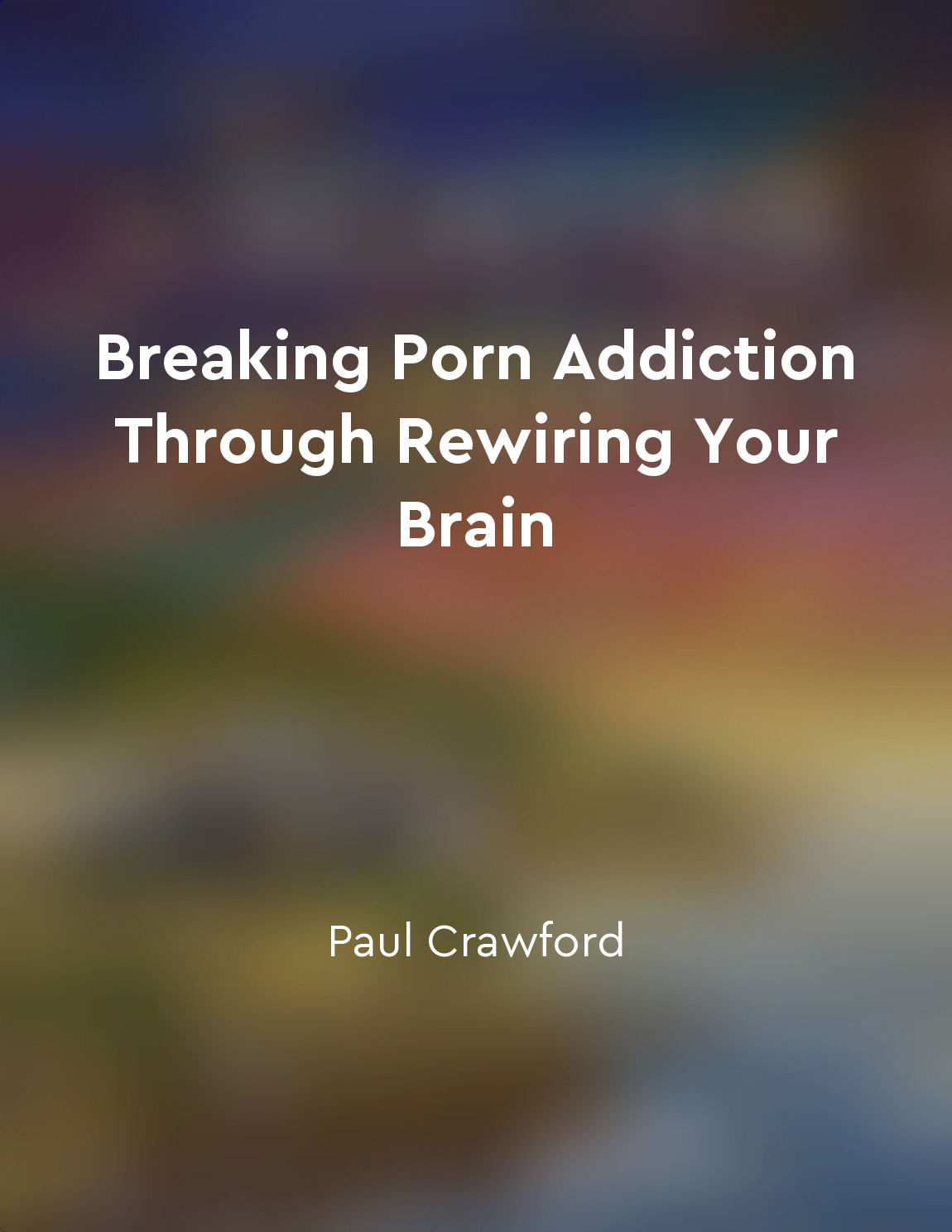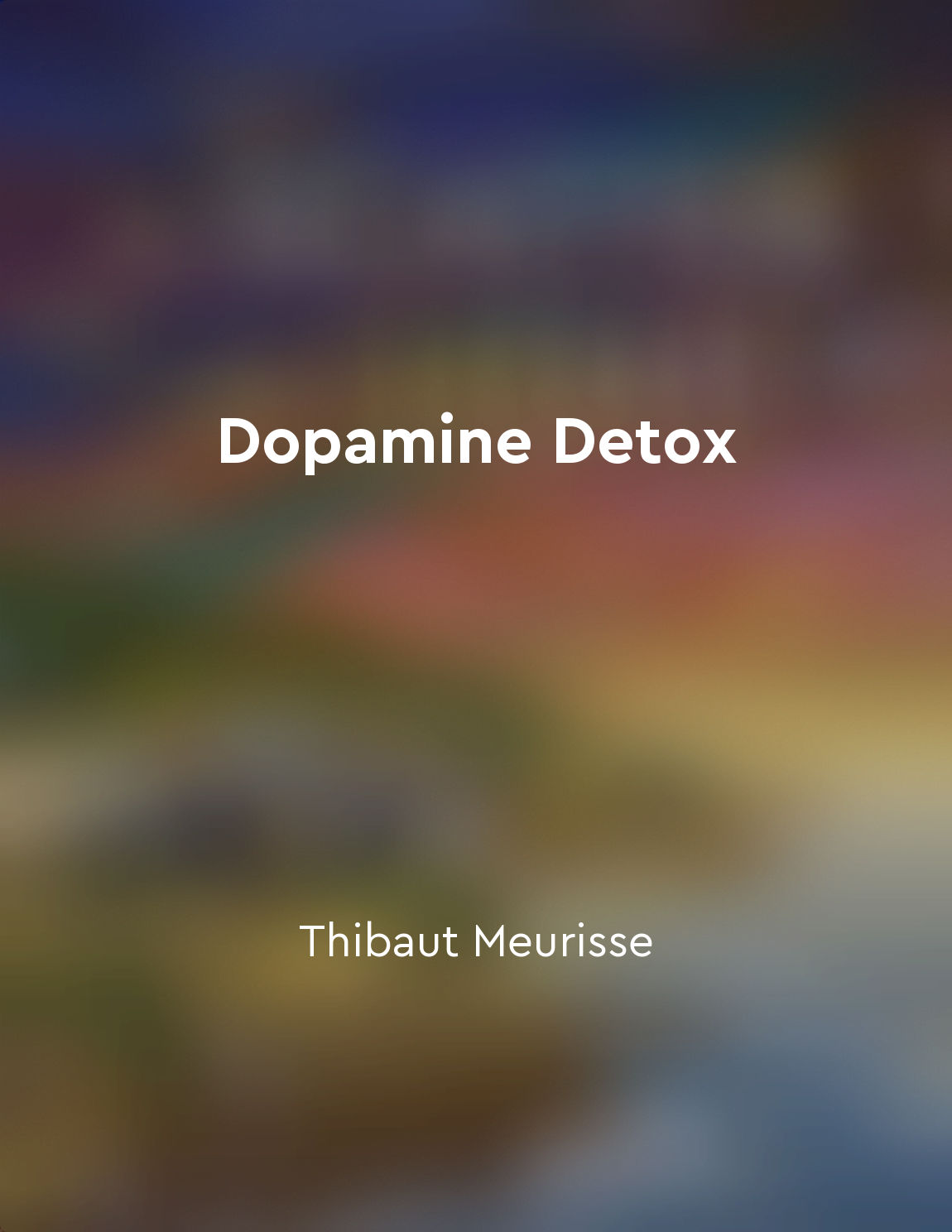Drug use alters brain chemistry from "summary" of Drugs, Addiction, and the Brain by George F. Koob,Michael A. Arends,Michel Le Moal
Drug use alters brain chemistry by changing the way neurons communicate with each other. Neurons are the basic building blocks of the brain, responsible for transmitting information through electrical and chemical signals. When drugs are introduced into the brain, they disrupt this delicate balance by mimicking or interfering with natural neurotransmitters. For example, drugs like cocaine and amphetamines can increase the release of dopamine, a neurotransmitter associated with pleasure and reward. This flood of dopamine can create feelings of euphoria and reinforcement, encouraging the user to seek out the drug again and again. On the other hand, drugs like opioids can bind to receptors in the brain that are normally activated by endorphins, the body's natural painkillers. By hijacking these receptors, opioids can dampen pain signals and produce a sense of relaxation and well-being. Over time, repeated drug use can lead to changes in the brain's reward system, making it harder for individuals to experience pleasure from everyday activities. This phenomenon, known as tolerance, can drive individuals to consume larger doses of the drug in order to achieve the same effects. In addition to altering the brain's reward system, drugs can also affect other areas of the brain involved in decision-making, impulse control, and memory. Chronic drug use can disrupt the functioning of these regions, leading to impaired judgment, compulsive drug-seeking behavior, and cognitive deficits. Furthermore, drugs can induce neuroadaptations in the brain, altering the structure and function of neurons in response to prolonged exposure. These changes can contribute to the development of addiction, a chronic relapsing disorder characterized by compulsive drug use despite negative consequences.- Drug use alters brain chemistry by modifying the way neurons communicate, disrupting the brain's reward system, impairing cognitive function, and promoting neuroadaptations that underlie addiction. These changes can have profound and long-lasting effects on behavior, making it challenging for individuals to break free from the cycle of drug dependence.
Similar Posts

Social interactions influence cognition
Our brains are wired to constantly process information, make decisions, and interact with others. One key aspect of our cogniti...
Dopamine Detox is essential for optimal wellness
Dopamine detox is crucial for achieving optimal wellness in our lives. Our brains are constantly bombarded with various stimuli...

Building new habits takes time and effort
Establishing new habits is not a quick fix. It requires time and effort. Changing ingrained behaviors and thought patterns does...
Coloring can stimulate creativity and problemsolving skills
Coloring has long been recognized as an activity that can unleash creativity and problem-solving skills. When we pick up a colo...

Focus on positive reinforcement to stay motivated during the detox
To successfully navigate the process of detoxing from dopamine triggers, it is crucial to shift your focus towards positive rei...
Education is key in preventing drug use
Education plays a crucial role in preventing drug use. By educating individuals about the risks and consequences associated wit...
Stress can have a significant impact on our behavior
When stress comes at you, it engages the sympathetic nervous system, releasing adrenaline. This prepares you for a fight-or-fli...

